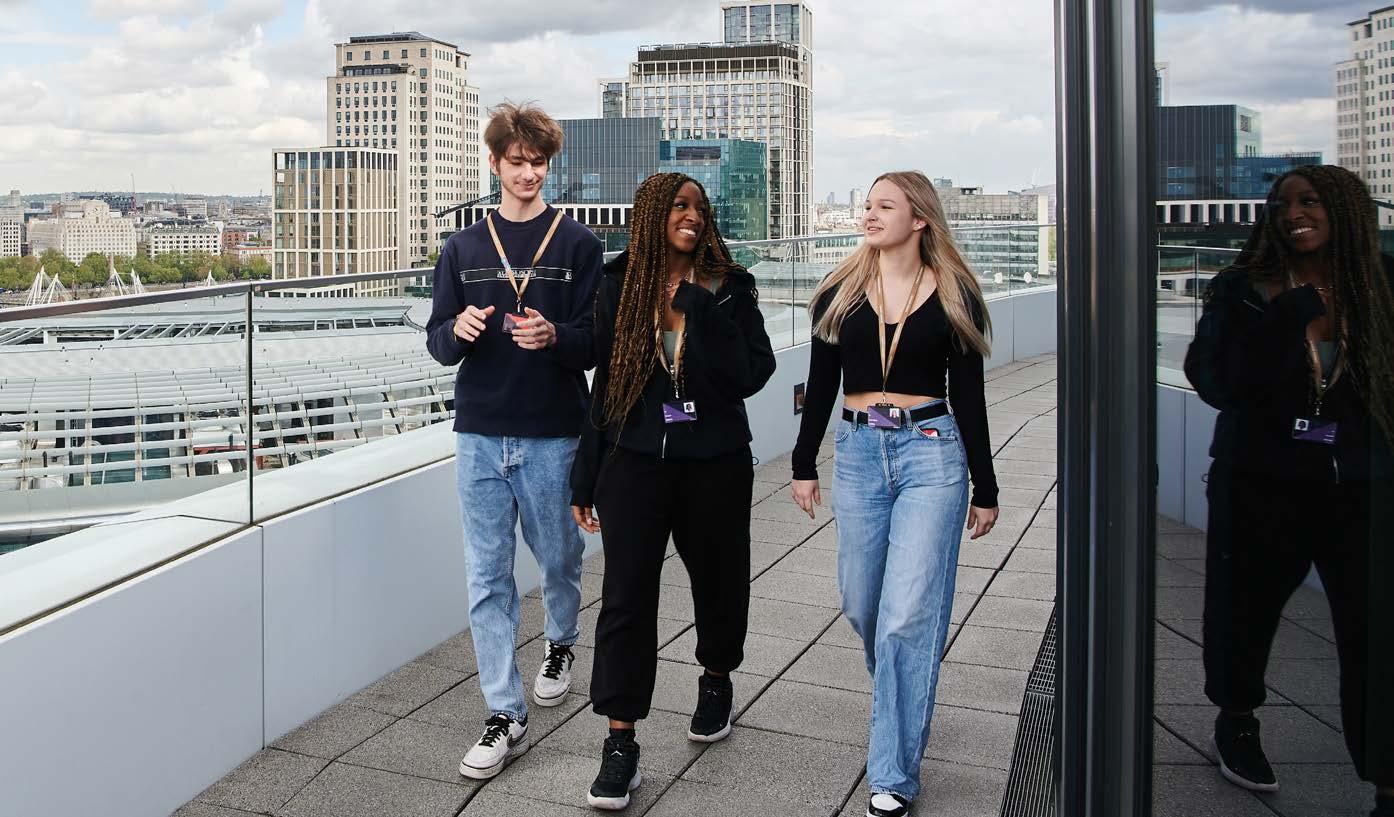
4 minute read
Safe spaces
Stamford School’s radical Learning for Life curriculum is starting vital conversations around respect and relationships, says KENDAL MILLS
The allegations earlier this year of historic peer-on-peer sexual harassment and abuse by students at thousands of schools, colleges and universities rocked the education world, and the harrowing accounts on the Everyone’s Invited website made for di cult reading. As schools, we had to respond without any hint of defensiveness or by appearing to underplay the problem. e media-coined term ‘rape culture’, was initially applied to ‘private’ schools and tended to be linked to words like ‘elitism’ and ‘entitlement’. at was unhelpful and somewhat misleading because it generated a caricature of the issue. e thousands of allegations made by current and former students were varied – degrading language used by male students towards female students, body-shaming, indecent postings online, nonconsensual sexual touching and, in extreme cases, rape – so our response to that complex range of transgressions needed to be sure-footed enough to
address them all in a variety of ways.
Although it only became statutory from September 2020, Stamford School has been delivering a robust and relevant Relationships & Sex Education (RSE) curriculum for many years. We’ve always believed that part of Personal, Social and Health Education (PSHE) – which we now call Learning for Life – to be of central importance, as it touches on so many aspects of young people’s lives and is territory that they, by their own admission, nd di cult to negotiate.
In year seven, our focus is rmly on respectful relationships of all kinds, and incorporates a strong anti-bullying message. In year eight, we explore online behaviour because that tends to be the age when boys and girls begin to get drawn into some of the more unsavoury aspects of the internet such as the sending of indecent images of one another and writing o ensive messages in group chats. In doing so, we draw on the work done in year seven on respectful relationships and extend that into their online lives – which they o en perceive as being totally separate from ‘real life’. is continues through to year 13.
Teaching boys about consent and the distinction between consensual and nonconsensual sexual activity can be daunting, and delivering such critically important messages in the right way needs clear thinking and a great deal of sensitivity. A er all, we’re involving ourselves in very intimate aspects of young people’s lives, and the topic is awkward for many of them. While colleagues are happy to engage with the topic in our Learning for Life lessons, we do make use of external facilitators who possess greater expertise and whom students feel they can ask questions of that they might not wish to ask a teacher or tutor.
We’re fortunate to have access to a local organisation called e Conversation (theconversationstamford.co.uk) whose practitioners run workshops on healthy
relationships, consent, e-safety (aptly dubbed ‘cyber wisdom’) and the corrosive impact of online pornography on the developing male brain. online pornography on the developing male brain.
Similarly the Good Lad Initiative, a Londonbased charity, provides excellent advice designed based charity, provides excellent advice designed to encourage boys and young men to tackle the root causes of gender inequality, challenge toxic root causes of gender inequality, challenge toxic masculinity, and teach them to grow up to become masculinity, and teach them to grow up to become respectful, sensitive men who understand that consent lies at the heart of all relationships.
In the months following the whistleblowing of In the months following the whistleblowing of Everyone’s Invited and other online platforms, it has become clear that boys of all ages are genuinely worried about those boundaries and are genuinely worried about those boundaries and are asking open and probing questions. e fact that such questions are being asked is a positive sign, and should be seen as an expression of desire for change. It’s up to schools, colleges and universities to continue to lead that change.
Kendal Mills is Deputy Head (Pastoral) at Stamford School, Lincolnshire

JOIN OUR MULTI-AWARD WINNING SCHOOL

If you are looking for a challenge and want to be celebrated for the individual that you are, we offer a wide range of GCSE, A Level & BTEC courses together with exceptional pastoral care.
We provide a caring, supportive, and student-focused environment where our students benefi t from amazing learning and teaching opportunities, with many progressing to join some of the UK’s fi nest universities.
DLD College London is a co-educational independent day and boarding school for ages 14-19, providing the highest levels of support for student wellbeing and the best there is on offer in urban boarding.
Enquire today and discover more about our multi-award winning school.
Next Virtual Open Morning Friday 19th November @ 9.30am DAY AND BOARDING PLACES AVAILABLE
Winner: Special Judges’ Award Independent Schools of the Year Awards 2020
Winner: Innovation in Pupil Voice Independent Schools’ Association (ISA) Awards 2020
Highly Commended Finalist: Wellbeing Initiative of the
Year TES Independent Schools Awards 2021
Winner: Boarding School of the
Year Independent Schools of the Year Awards 2020
Winner: Wellbeing Mental Health Initiative Award Boarding Schools’ Association
Gold Award: Boarding School Mental Health Carnegie Centre of Excellence for Mental Health in Schools










